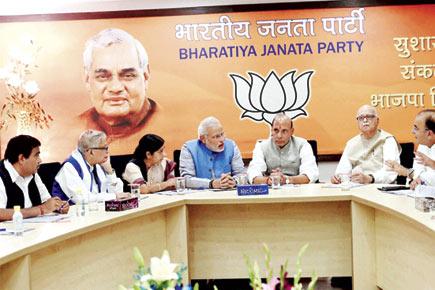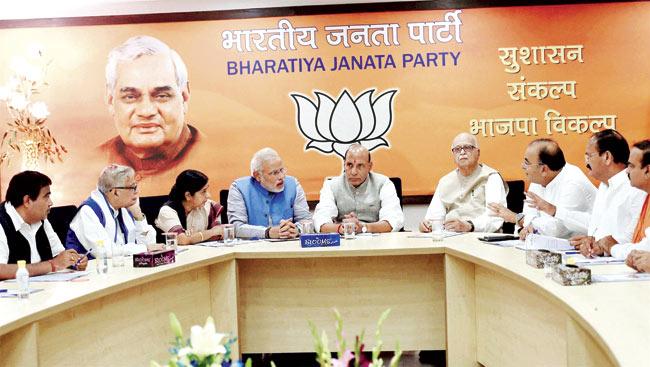In William Shakespeare’s Julius Caesar, Cassius and Brutus have an enlightening squabble about friendship where Cassius accuses Brutus of being too critical of Cassius’s faults while Brutus points out that friendship does not mean being blind to the other’s shortcomings

 In William Shakespeare’s Julius Caesar, Cassius and Brutus have an enlightening squabble about friendship where Cassius accuses Brutus of being too critical of Cassius’s faults while Brutus points out that friendship does not mean being blind to the other’s shortcomings.
In William Shakespeare’s Julius Caesar, Cassius and Brutus have an enlightening squabble about friendship where Cassius accuses Brutus of being too critical of Cassius’s faults while Brutus points out that friendship does not mean being blind to the other’s shortcomings.
The Cassius argument is a dangerous argument because it implies that love means closing your mind. The new head of the Indian Council for Historical Research (ICHR), Professor Y Sudershan Rao has this to say about the caste system in a blog he wrote a few years ago: “The caste system was working well in ancient times and we do not find any complaint from any quarters against it.”
ADVERTISEMENT

The BJP’s strong links with the RSS has led to a rise in fears that the Sangh will try and change India’s perception of itself through cultural, social and academic efforts as it had in the previous NDA regime, ridding India of the ‘Marxist tools’ which have governed academia especially history. Pic/PTI
Rao has been appointed by the new Narendra Modi-led government to head the ICHR. This has led to a rise in fears that the RSS will try and change India’s perception of itself through cultural, social and academic efforts as it had in the previous NDA regime, ridding India of the ‘Marxist tools’ which have governed academia especially history.
Even assuming that Marxist academics have been a scourge from Dante’s Inferno, it takes a special kind of India love for a historian to state that the caste system has been “misinterpreted as an exploitative social system for retaining economic and social status of certain vested interests of the ruling class.”
The comment about lack of complaints is fascinating. Where was the grievance mechanism for an untouchable to complain in those ancient times? The assumption that the caste system worked well in ancient times suggests that every caste knew its place and therefore there was no conflict. But the very objection to the caste system is the codified hierarchy where some people were so low down the list that even their shadows were seen as polluting.
Should the untouchable have complained to the Brahmins, who would not let his shadow cross his threshold? A system of division of labour is one thing; but a system where some people are treated as sub-human is something else entirely.
Several historians who have been accused of having Marxist leanings have objected to Rao’s appointment and to his statements on caste. Their objections though sound valid: he is not well-known in academic circles and has not been published in enough ‘peer-reviewed’ journals.
The question the rest of us have to ask is, what effect will a person with such beliefs have on historical research in India? We still live with caste discrimination today. The Constitution has not been able to wipe away millennia of entrenched prejudice. So Rao’s statements about caste being misinterpreted as an exploitative system become even more unpalatable.
Some will argue that too much is being made of this and the usual defence is that every government in power tries to manipulate history and social studies to suit its own views. That may be true. But there is no defence here because every attempt to misguide and misdirect has to be countered no matter who does it.
There is no shame in stating that ancient India was not perfect. Surely only an extreme fool would imagine that any place was ever perfect. It is an insecure person who is unable to grasp that greatness is not lack of fault or papering over faults but acknowledging and overcoming one’s faults. The problems of the caste system far outweigh its possible benefits in the early stages, if any.
Rao as head of ICHR also wants to try and establish the historicity of India’s great epics, the Ramayana and Mahabharata. This deliberate attempt to try and limit mythology by presenting it as fact is an old Hindutva trick, where it tries to copy the religions of the book.
The last NDA government spent a lot of money trying to find a ‘Saraswati civilisation’ to no avail because it was unsatisfied with the so-called faults in India’s history. And yet, Indian history, ancient and modern, warts and all, is a rich cornucopia wider in scope and wonder than many other countries can boast of.
There is enough to be both proud of and ashamed of. Insecurity is a dangerous and demanding goddess. Are we going to worship at that altar all over again?
Ranjona Banerji is a senior journalist. You can follow her on twitter @ranjona
 Subscribe today by clicking the link and stay updated with the latest news!" Click here!
Subscribe today by clicking the link and stay updated with the latest news!" Click here!







